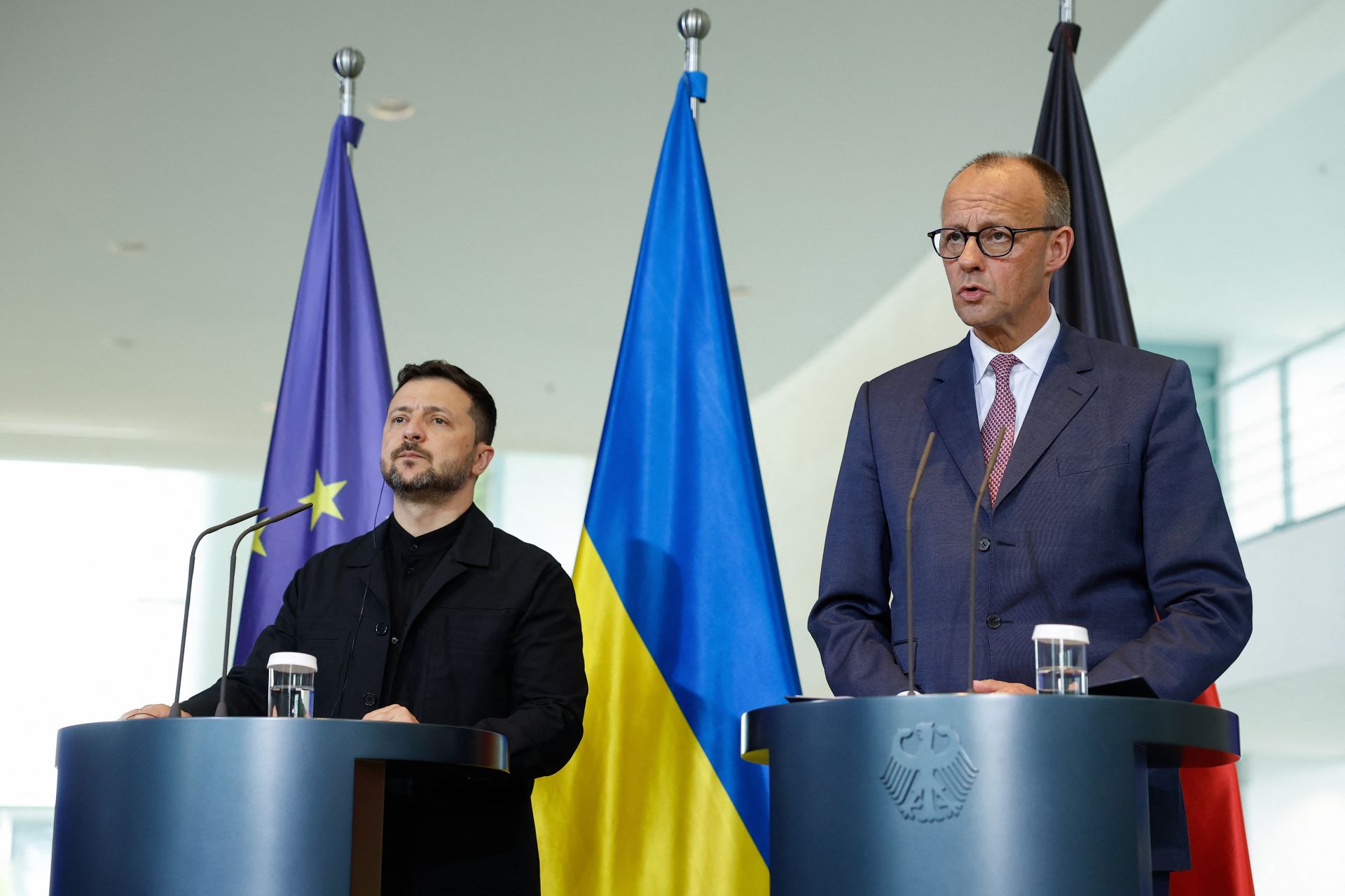- Home
- Middle East
- Merz Announces Germany and Ukraine to Jointly Produce Long-Range Weapons

German Chancellor Friedrich Merz (R) and Ukrainian President Volodymyr Zelensky give a joint press conference at the Chancellery in Berlin on May 28, 2025. ©Odd Andersen / AFP
German Chancellor Friedrich Merz said Wednesday during a visit by Ukrainian President Volodymyr Zelensky that Berlin will help Kyiv develop new long-range weapons that can hit targets well inside Russian territory.
Both countries' defense ministers later signed a memorandum of understanding for the production of long-range weapons systems, but without revealing technical details or naming the manufacturers involved.
"There will be no range restrictions, allowing Ukraine to fully defend itself, even against military targets outside its own territory," Merz told a joint press conference.
Zelensky's Berlin visit comes days after Russia launched some of its heaviest missile and drone attacks of the conflict on Ukraine, and as US President Donald Trump has voiced growing frustration with Russia's President Vladimir Putin.
The Ukrainian president accused Russia of stalling peace talks and said Moscow did not want to halt its three-year invasion, adding that "they will constantly look for reasons not to end the war."
Merz said that "the massive air strikes, particularly on the city of Kyiv over the weekend, do not speak the language of peace, but rather the language of a war of aggression."
"This is a slap in the face of all those who are trying to bring about a ceasefire in Ukraine itself, but also in Europe and the USA."
He warned that "the Russian side's refusal to hold talks, the refusal to observe a ceasefire, now really has consequences, and we are drawing these consequences every day."
Kremlin spokesman Dmitry Peskov told state media when asked about Merz's weapons announcement, "All these actions naturally hinder peace efforts."
Merz also pointed to reports that Russia and American investors are hoping to resume Russian gas deliveries through the destroyed Nord Stream pipelines running through the Baltic Sea and vowed that Germany will "do everything" to ensure this will not happen.
'Military-Industrial Cooperation'
Merz, who took power early this month, has vowed to keep strongly backing Ukraine, but without giving details of which weapons Germany is sending, in line with a policy of strategic ambiguity.
The joint production of long-range weapons "can take place both in Ukraine and here in Germany," he said. "We will not provide any further details until further notice."
Merz hailed the project as "the beginning of a new form of military-industrial cooperation between our countries that has great potential."
Merz had pointed out in a TV interview this week that already "there are no longer any range restrictions on weapons delivered to Ukraine -- neither by the British nor by the French nor by us nor by the Americans."
"This means that Ukraine can now defend itself, for example, by attacking military positions in Russia... With very few exceptions, it didn't do that until recently. It can now do that."
Germany's defense ministry said the new agreement for direct investment "will enable a significant number of long-range weapons to be produced this year."
"The first of these systems can be deployed in the Ukrainian armed forces in just a few weeks," it said, adding that "they are already in service in the Ukrainian armed forces, so no additional training is required."
The ministry said Germany was also sending ammunition and small arms and helping with satellite communications and medical gear as part of a five billion euro tranche of support previously approved by the German parliament.
AFP
Comments